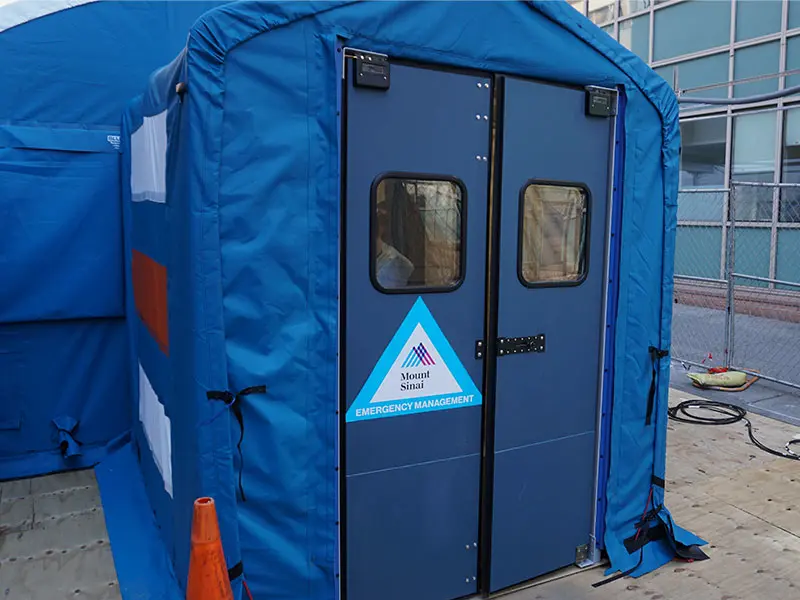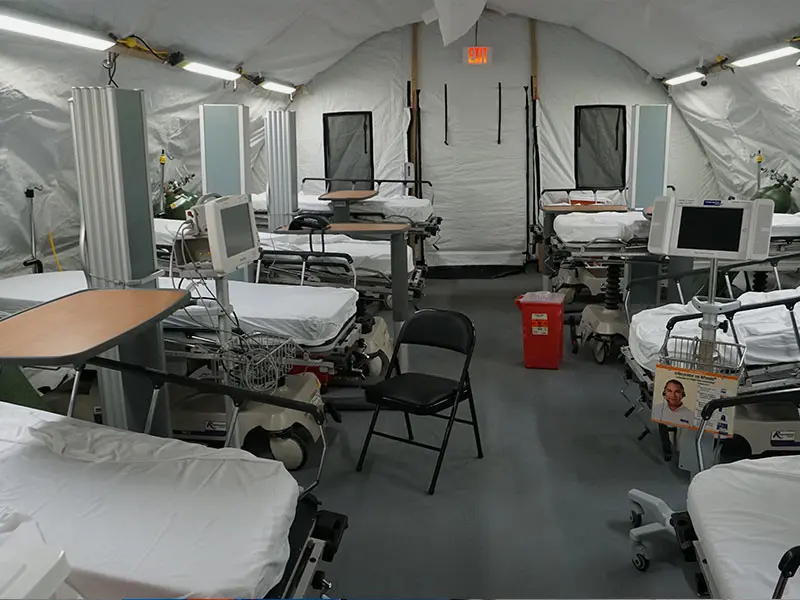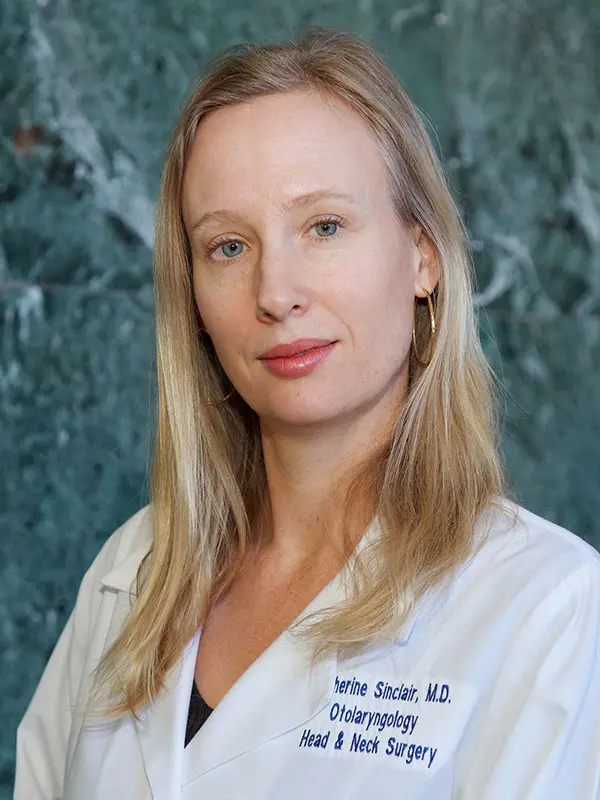After more than 10 years as an ear, nose, and throat surgeon, it had been a long time since Catherine F. Sinclair, MD, treated a patient outside of her specialty area. That changed in mid-March 2020—the height of the COVID-19 pandemic in New York City—
when Dr. Sinclair and countless other physicians from departments like Orthopedics, General Surgery, and Radiology answered the call to serve the overburdened front line at the Mount Sinai Health System.
As the crisis progressed, emergency room physicians became sick and surgical offices began to close. Multidisciplinary surgical teams were organized throughout the Health System to take over some of these COVID-19 wards from ill, fatigued staff.
Dr. Sinclair, who is an Associate Professor of Otolaryngology - Head and Neck Surgery at the Icahn School of Medicine at Mount Sinai and Director of Head and Neck Surgery at Mount Sinai West, signed up to help right away. “I have never experienced anything that compared to this—it was hectic, but also extremely satisfying to be able to contribute and learn so much,” she says.
For six weeks, Dr. Sinclair and her colleagues—in teams of four otolaryngology attendings and six residents—ran a subacute COVID-19 unit at Mount Sinai West. Alongside a superb nursing staff, the group worked in 12-hour shifts to treat an entire ward of patients with the virus. For the first time since Dr. Sinclair was in medical school, she, along with her team, treated complex conditions outside her specialty area, including pulmonary disease, kidney and heart failure, and electrolyte imbalances. The unit itself was a level of care below the intensive care unit—many patients were in negative pressure isolation rooms and on aerosolized breathing treatments.

A COVID-19 overflow tent was located outside of Mount Sinai West which is situated on the West Side of Midtown Manhattan.

Interior view of the COVID-19 overflow tent
“What stood out to me was how well everyone worked together and stepped up to the challenge. It was a real bonding experience for the hospital staff,” recalls Dr. Sinclair. “There were intense situations every day with patients and their families, but everyone kept calm.”
A Crash Course in Medical School
While pulmonary and infectious disease teams were on hand to supervise and assist when needed, retraining these teams of surgical staff was imperative. In the beginning of March, intensivists at the Critical Care Institute had the foresight to develop an online module for non-Critical Care physicians in the event they needed to care for COVID-19 patients. “It was a crash course on topics learned in residency and medical school,” says Dr. Sinclair. “As surgeons we tend to get hyper-focused in our specialty area so it was personally very satisfying to be able to revisit some of these pulmonary concepts that were buried in my subconscious.”
Some of that knowledge has even benefited her surgical practice today. “Ear, nose, and throat specialists deal a lot with airways so learning more about ventilator and BiPAP settings will be helpful in situations where I may have an intensive care consult,” she explains. In addition, expanding her contacts within the Health System has also driven numerous cross-referrals.
An Unforgettable Moment in Time
It was remarkable, Dr. Sinclair adds, what the Health System accomplished in only a few weeks. Before she was assigned to the COVID-19 unit at Mount Sinai West, Dr. Sinclair volunteered to lead the hospital’s physician deployment response. She helped identify staffing voids, liaise with Departments about potential volunteers, and assign physicians to units in need. Even after Dr. Sinclair was stationed, she continued to assist with staffing deployment early in the morning, after her night shift ended.
One of the hardest parts, she describes, was watching elderly patients who led rich, full lives for so many years die without any family around. There are many patients that Dr. Sinclair will not forget. A husband recovering from a long stay in the intensive care unit who finally returned home. An elderly woman who had been away from her family for weeks and just wanted someone to hold her hand. A middle-aged man who took a turn for the worse during the middle of the night shift.
“There are several names that will stick with me forever,” recalls Dr. Sinclair, who says the hospital staff became their surrogate family. “It was an experience I will forever remember, but hope never to have to repeat.”
The intensity of the pandemic’s initial wave has given physicians like Dr. Sinclair a tremendous wealth of knowledge and experience to draw upon. If conditions are replicated, Mount Sinai’s otolaryngology team will be ready and able to help.
Featured

Catherine F. Sinclair, MD
Associate Professor Otolaryngology - Head and Neck Surgery